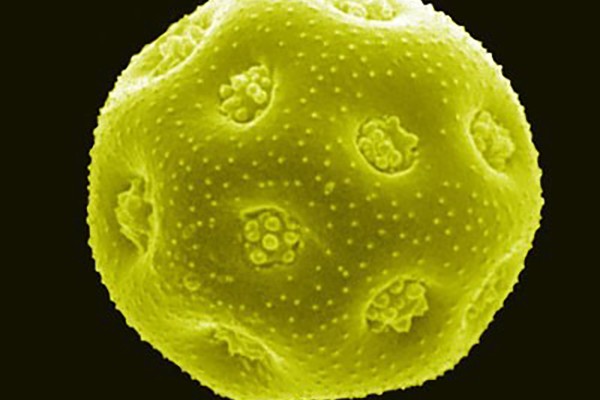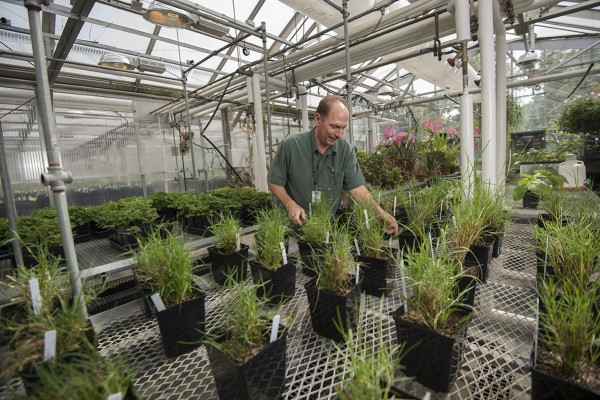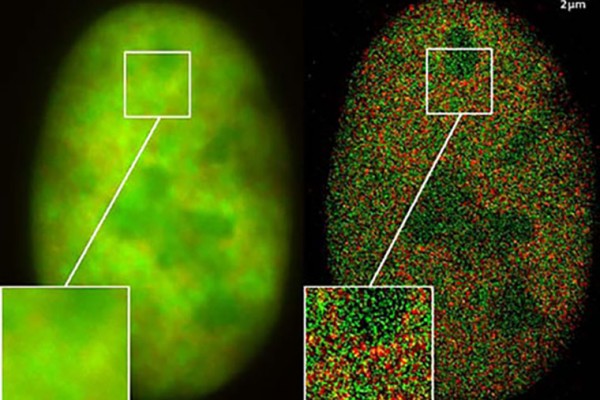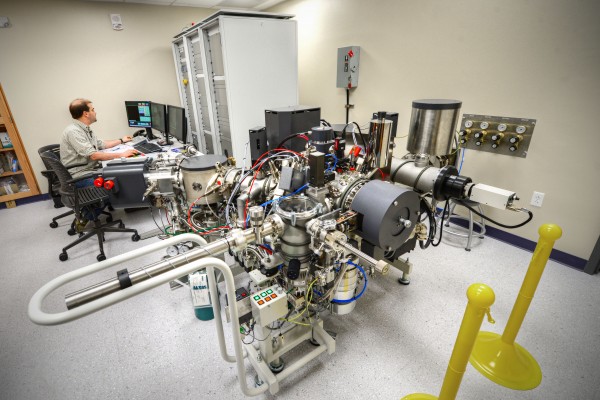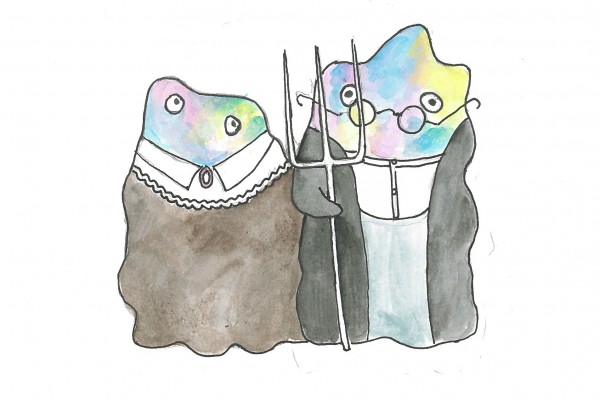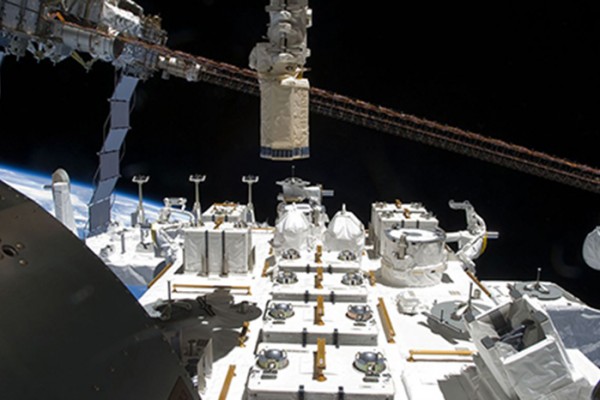Bose named Packard Fellow
Arpita Bose, PhD, assistant professor of biology in Arts & Sciences at Washington University in St. Louis, has been named a Packard Fellow, a prestigious distinction awarded to only 18 top young researchers nationwide this year. Bose plans to use the grant to work with unusual microbes that can take electrons directly from an outside source to draw down atmospheric carbon dioxide or make sustainable biofuels.
Scientists discover ancient safety valve linking pollen to bacteria
New research shows that an ancient protein that protects bacteria from bursting also helps pollen survive the dangerous transition from desiccated to hydrated once it lands on the female flower. But in pollen’s case, the protein has evolved to provide just the right amount of internal pressure: enough to power cell growth but not so much that the pollen bursts and dies.
Washington People: Mike Dyer
Mike Dyer, supervisor of the greenhouse on the campus of Washington University in St. Louis, has the job many of us probably wish we had — but only because we think he spends the day pottering around watering plants. Instead, his job requires everything from the mechanical and engineering skills needed to suppress the greenhouse’s voracious appetite for energy; extensive knowledge of insects; and the ability to grow any plant he is handed under the conditions specified. It’s not exactly relaxing, but he enjoys it that way.
WashU Expert: Brace yourself, it’s fall-back time again
Falling back is easier on us than springing forward, says Erik Herzog, a biologist at Washington University in St. Louis who has devoted his career to studying body clocks and circadian rhythms. But it is never a good idea to force our body clocks to follow abrupt changes in mechanical clocks. We should get rid of daylight savings time, Herzog says.
Nobel laureate Moerner to give 2015 Weissman Lecture
Nobel laureate and Washington University in St. Louis alumnus William E. Moerner, PhD, will present the Weissman Lecture “Fun with Light and Single Molecules Opens Up an Amazing New View Inside Cells” at 4 p.m. Thursday, Nov. 5, in Louderman Hall on the Danforth Campus. The lecture describes the surprising techniques he and other chemists developed for imaging individual molecules, techniques that won him the 2014 Nobel Prize in chemistry.
WashU Expert: Arvidson on news that water still flows on Mars
NASA announced earlier this week that dark streaks that appear on Martian slopes in the summer, lengthen and then fade as winter approaches are seeps of salty water. The news that Mars still has surface water again raised hopes that it may have life. It will take thoughtful mission planning to find out, says Washington University in St. Louis Mars expert Ray Arvidson, PhD.
$2.4 million instrument upgrade will let scientists see what is happening inside microbes
The U.S. Department of Energy has awarded David Fike, PhD, associate professor of earth and planetary sciences, $2.4 million to adapt a powerful chemical microscope called the 7F-GEO SIMS for biological samples. The updated instrument’s ability to map the chemistry inside cells will boost research on microbes that are promising candidates for biofuel or bioenergy production.
Blake Thornton: No. 1 standup paddleboarder
Washington University in St. Louis mathematician Blake Thornton, PhD, came in first in the paddleboard division of the MR340, an endurance race on the Missouri River. Before signing up for next year’s race, you might want to read this article as well as watch the video.
Bacterial infection makes farmers out of amoebae
A bacterial infection turns non-farming social amoebae into farmers, Washington University evolutionary biologists report in the Aug. 24 issue of Proceedings of the National Academy of Sciences.
High-energy observatory launches this week
On Wednesday, Aug. 19, at 8:15 a.m. St. Louis time, NASA TV will begin broadcasting the launch of a cargo container at the Tanegashima Space Center off the southern coast of Japan. In addition to water and spare parts, the cargo container will carry CALET, an astrophysical observatory designed to study the high-energy cosmos.
View More Stories

